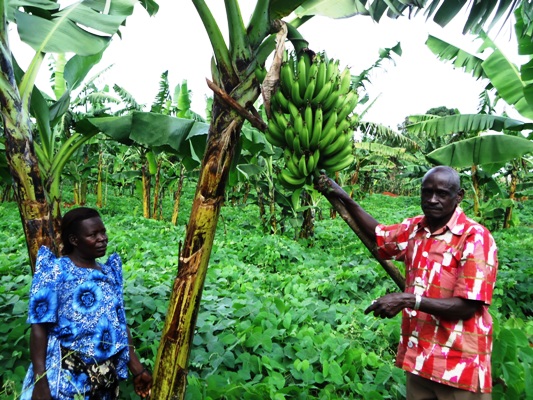A group of investment companies in East Africa have reached an agreement with the Financial Sector Deepening Uganda to mobilise long-term capital for the private sector.
Under the deal, the East African Private Equity and Venture Capital Association (EAVCA), a group of 65 companies, will identify companies in Uganda that are worth investing in as part of the initiative that is expected to bridge the financing gap faced by SMEs.
The association member companies include development finance companies, private equity companies, venture capital and fund managers, asset managers and advisory firms. These companies mainly mobilise funds and invest them in growing businesses, usually for a long period of time, depending on the need of the beneficiary company.
The funds invested are therefore a source of long-term cheap capital and recommended alternative to commercial bank credit. However, these investors require that the firms into which the investments are made, meet certain procedures including proof of growth or growth prospects, financial statements for previous periods and asset records, among others.
Many Ugandan companies do not meet these requirements, the reason why many do not even qualify to list shares on the stock markets. To prepare Uganda’s small and medium enterprises for this market, the European Union and the Capital Markets Authority established the Deals Flow Facility (DFF), a technical assistance and matchmaking initiative to respond to the capital deficiency gap in Uganda.
The DFF, managed by the Financial Sector Deepening Uganda (FSDU), a not for profit company, has now reached an agreement with the East African Private Equity and Venture Capital Association, to mobilise investment companies to fund the growth of Uganda’s SMEs.
Norah Koigi Ngare, the Director of DFF said the have their mandate includes training companies before connecting them to financiers.
The DFF aims to make over 220 Ugandan businesses ‘investment-ready’, with over 40 equity deals closed in the next five years, so as to stimulate private sector growth. The association, represented in Uganda by Ascent Capital, focuses on companies that need at least 500,000 dollars (1.77 billion shillings) or more.
Richard Mugera, the Country Director for Uganda at Ascent Capital, says they hope to finance companies that may have financing needs of up to 20 million US Dollars, adding that, unlike the big entrepreneurs, SMEs are in greater need.
Mugera says they have more than half a billion US Dollars ready for the Ugandan market because they have seen how stably growing the economy is.
The Deal Flow Facility was established to support growth-stage companies that are looking to raise non-bank capital by matching them with potential investors. According to a report by EAVCA, 55% of MSEs need credit to recover their business and 42per cent need financial assistance for their businesses to survive, after the effects of the COVID-19 pandemic.
“As MSEs adapt to the changing business environment, they need external support to revive businesses and build resilience,” it says, adding that women entrepreneurs need special support with the skills and capabilities to rebuild after the crisis.
Joseph Lutwama, the Acting Chief Executive at FSDU says they are trying to build a complete financial market that will cater for all kinds of enterprises, with any size of business able to access capital whenever needed.
EAVCA says its main role is to promote East Africa as a private capital destination while ensuring a favourable environment for trade for the private capital sector. The group also will offer other forms of technical assistance to ensure that the beneficiaries of their investments reap maximum benefit.
Jarl Heijstee, the Managing Partner of XSML, says this partnership should be made permanent so that Ugandan businesses will have a stable source of long-term capital.
The DFF is focused on already established businesses, building their investor readiness, where required, and connecting them to capital pools beyond bank financing. So far some 80 enterprises are being prepared to be able to be matched with investors.
Ms Koigi says most of the SMEs in Uganda are far below the standards that can be accepted by equity investors but add that one of the duties of the initiative; is to make them investor-ready.
-URN





